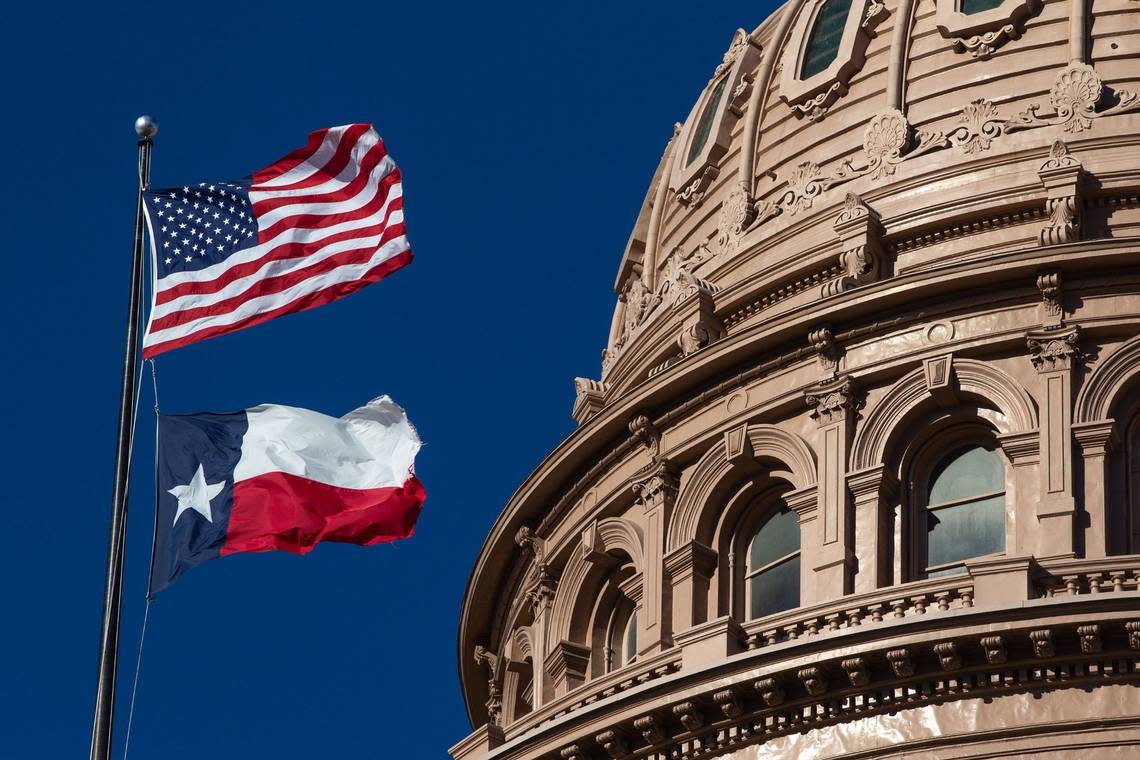TX lawmakers adjourn (again) without sending teacher pay raises, vouchers to governor

The fourth special Texas legislative session ended Tuesday without sending a voucher-like program or teacher pay raises to Gov. Greg Abbott.
Lawmakers have been meeting in Austin for nearly a year on a variety of issues. The past two special sessions have included agendas related to teacher pay and education savings accounts, a voucher-like program that would let parents use public dollars for their child’s public schooling.
Bills on both topics passed in the Texas Senate in the session, but the House on Nov. 17 stripped the voucher-like program from a broad education bill that also included measures related to school funding, teacher raises, school accountability and special education. The legislation was sent back to a House committee but was ultimately never heard.
Both chambers also approved school safety measures — the House on Nov. 17 and the Senate on Friday — but neither made it to Abbott’s desk.
Today's top stories:
→ Wife, only survivor of crash that killed Fort Worth CEO and kids, home from hospital
→ WATCH: 'Incredible courage.' Police release video as deputy returns fire after being shot
→ Texas drops eminent domain effort to seize Fairfield Lake property
🚨Get free alerts when news breaks.
The removal of education savings accounts from the wide-reaching education bill had the support of the majority of lawmakers, including 21 Republicans, in a 84-63 vote that acted as test of how the program fares in the House.
Both chambers adjourned Tuesday. It remains to be seen whether Abbott will call them back for another special session focused on education savings accounts, a top priority for the governor.
“I will continue advancing school choice in the Texas Legislature and at the ballot box, and will maintain the fight for parent empowerment until all parents can choose the best education path for their child,” Abbott said in a statement following the vote. “I am in it to win it.”
Renae Eze, a spokesperson for Abbott, reiterated that point in a statement. She did not directly say whether Abbott plans to call lawmakers back but repeated that Abbott will “will continue to work with Texas legislators and at the ballot box to get school choice for all Texas families.”
“The fight for school choice for all Texas families will continue until it’s won,” Eze said.
If Abbott does call lawmakers back for another education-related session, it could be ahead of or after the March 5 primaries. Early voting starts Feb. 20.
Lt. Gov. Dan Patrick held a news conference Tuesday after both chambers gavelled out. He spent much of the time criticizing Phelan’s leadership in the House and blaming him for failed bills over the past sessions. That includes a policy passed by the Senate on Friday that would accelerate the timeline for legal challenges to constitutional amendment elections.
The bill was filed after far-right activists filed lawsuits challenging the November constitutional amendment election, according to Votebeat and The Texas Tribune. The legislation’s author, Mineola Republican Sen. Bryan Hughes, said the cost of living adjustment for retired teachers and property tax cut measures approved by voters could be in jeopardy if the bill doesn’t pass.
He and Phelan have publicly argued in recent months.
“We are at a point where the legislative process is totally broken because of a lack of leadership and truthfulness from the Speaker of the House,” Patrick told reporters.
Asked about his expectations for future special sessions, Patrick said that’s the governor’s call.
Phelan did not address the voucher-like program or teacher pay in a Tuesday statement, but a spokesperson said “the House’s record and the facts speak for themselves.”
“The House is proud to have led on the issues of teacher pay and school safety by presenting more robust, permanent solutions, and it is unfortunate the Senate chose to kill those bills,” press secretary Kim Carmichael said. “The House remains focused on conducting business to the will of the people — not manipulating the legislative process for the sake of press conferences and cheap political talking points.”
Lawmakers did approve two bills related to the Texas-Mexico border. One allocates $1.5 billion for border security, including wall construction. Another bill makes it a state crime for a person who is not a U.S. citizen to cross the border anywhere other than a lawful entry point.


